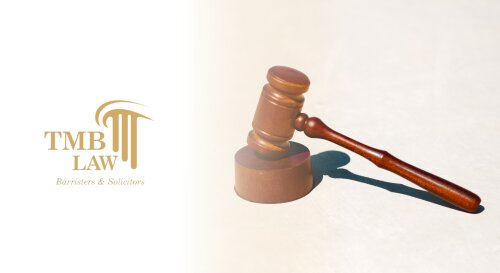Best Guardianship Lawyers in Oshawa
Share your needs with us, get contacted by law firms.
Free. Takes 2 min.
List of the best lawyers in Oshawa, Canada
About Guardianship Law in Oshawa, Canada
Guardianship law in Oshawa, Canada, involves the legal responsibility for a minor or an incapacitated adult. This responsibility includes making decisions about their personal welfare and managing their property. Guardianship can be granted by the court when the person is unable to manage their own affairs due to age, disability, or incapacity. The process typically involves a legal petition, evaluation by authorities, and court approval to ensure the best interests of the individual are being represented and safeguarded.
Why You May Need a Lawyer
Seeking legal help in guardianship cases can be crucial for several reasons:
- Complex Legal Procedures: The process of obtaining guardianship can be legally complex, requiring detailed documentation and understanding of local laws.
- Disputes: In cases where there is a disagreement among family members about who should be the guardian, a lawyer can provide mediation and representation.
- Rights Protection: Legal advice ensures that the rights of all parties, especially the ward (person under guardianship), are protected.
- Specific Requirements: If the guardian needs to handle specific responsibilities, such as managing a large estate or addressing complicated medical needs, specialized legal guidance is necessary.
Local Laws Overview
In Oshawa, Ontario, guardianship laws are governed by the Children’s Law Reform Act and the Substitute Decisions Act. Key aspects include:
- Children’s Law Reform Act: Governs the guardianship of minors, where a person can be appointed to take care of minor children in cases of parental incapacity or death.
- Substitute Decisions Act: Addresses the guardianship of adults who are unable to make financial or personal care decisions due to mental or physical incapacity.
- Capacity Assessments: Guardianship requires a formal assessment of the person’s capacity by a qualified professional.
- Court Proceedings: The application process generally involves court proceedings where evidence is presented, and the best interests of the individual are prioritized.
- Types of Guardianship: There are different types of guardianships, including guardianship of the person (personal care) and guardianship of the property (financial management).
Frequently Asked Questions
What is guardianship?
Guardianship is a legal process where a court appoints an individual to care for and make decisions for someone who is unable to do so themselves, typically a minor or an incapacitated adult.
Who can apply for guardianship?
Generally, family members, friends, or other interested parties can apply for guardianship. The court evaluates the suitability of the applicant based on the best interests of the ward.
How long does the guardianship process take?
The duration of the guardianship process can vary. It usually takes several months, as it involves assessments, documentation, and court hearings.
What are the duties of a guardian?
A guardian's duties can include making personal, medical, and financial decisions on behalf of the ward. They must act in the best interests of the person under guardianship.
Can guardianship be temporary?
Yes, courts can grant temporary guardianship in situations where urgent care is needed, pending a full assessment and permanent decision.
How is guardianship terminated?
Guardianship can be terminated if the ward regains capacity, reaches the age of majority (in the case of minors), or through court order based on a change in circumstances.
What is a capacity assessment?
A capacity assessment is an evaluation performed by a qualified professional to determine if the individual can make decisions on their own behalf.
Do guardians get paid?
Guardians can be reimbursed for reasonable expenses incurred in the performance of their duties. In some cases, they may receive a fee approved by the court.
How do I choose the right lawyer for guardianship issues?
Choosing the right lawyer involves looking for expertise in family or elder law, reputation, experience in guardianship cases, and compatibility with your needs and circumstances.
Can a guardian be changed?
Yes, a guardian can be replaced if they are not acting in the best interests of the ward or if circumstances change. This typically requires a new court petition and evaluation.
Additional Resources
Here are some resources that can be helpful for someone seeking legal advice on guardianship:
- Ontario Court of Justice
- Office of the Public Guardian and Trustee (OPGT)
- Legal Aid Ontario
- Durham Community Legal Clinic
- Family and Children’s Services of Durham
Next Steps
If you need legal assistance in guardianship matters:
- Consult a Lawyer: Seek a consultation with a lawyer who specializes in family or elder law to discuss your situation and options.
- Document Your Case: Gather all necessary documentation, including medical records, financial statements, and personal identification documents.
- File a Petition: With the guidance of your lawyer, file the necessary legal petitions and applications for guardianship.
- Attend Hearings: Participate in any required court hearings and provide any additional information requested by the judge.
- Follow Up: Ensure compliance with all follow-up requirements, such as submitting reports, attending further assessments, and maintaining clear records.
By following these steps and utilizing available resources, you can navigate the guardianship process more effectively and ensure that the best interests of the person in need of guardianship are safeguarded.
Lawzana helps you find the best lawyers and law firms in Oshawa through a curated and pre-screened list of qualified legal professionals. Our platform offers rankings and detailed profiles of attorneys and law firms, allowing you to compare based on practice areas, including Guardianship, experience, and client feedback.
Each profile includes a description of the firm's areas of practice, client reviews, team members and partners, year of establishment, spoken languages, office locations, contact information, social media presence, and any published articles or resources. Most firms on our platform speak English and are experienced in both local and international legal matters.
Get a quote from top-rated law firms in Oshawa, Canada — quickly, securely, and without unnecessary hassle.
Disclaimer:
The information provided on this page is for general informational purposes only and does not constitute legal advice. While we strive to ensure the accuracy and relevance of the content, legal information may change over time, and interpretations of the law can vary. You should always consult with a qualified legal professional for advice specific to your situation.
We disclaim all liability for actions taken or not taken based on the content of this page. If you believe any information is incorrect or outdated, please contact us, and we will review and update it where appropriate.









